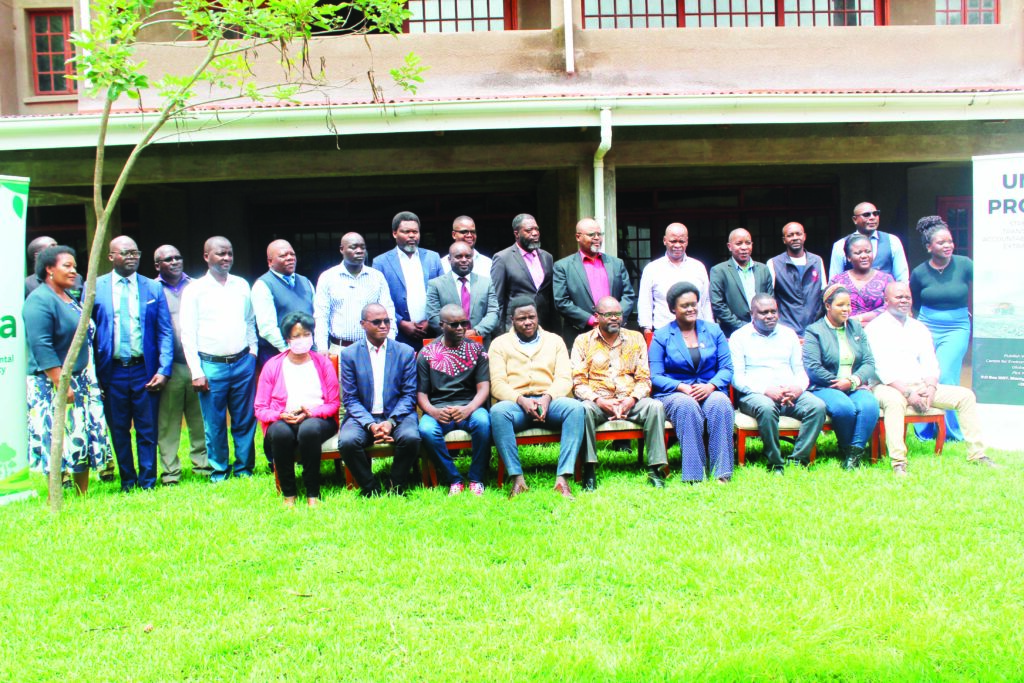
Mining
CEPA drills stakeholders in extractive governance
April 01, 2024 / Wahard Betha

Stakeholders in Malawi’s extractive sector had an opportunity to share knowledge and experiences on issues of transparency and accountability with colleagues from the Southern Africa region thanks to a workshop that a civil society group the Centre for Environmental Policy and Advocacy (CEPA) through the UNIKA-Strengthening Transparency and Accountability in the Malawi Extractive Sector Project hosted in Lilongwe.
The workshop was aimed at equipping stakeholders from the extractive sector with knowledge and experience on how they can strengthen extractive governance.
It was organized under the theme of ‘Strengthening Natural Resources Governance through Shared Learning.’
The workshop brought together players from Civil Society, members of the Extractive Industry Transparency Initiative (EITI) Multi Stakeholder Group (MSG) in the Eastern and Southern African (ESA) countries, Malawi government and the Media.
Executive Director for CEPA Herbert Mwalukomo hailed the meeting saying it provided a platform where local players learnt how stakeholders handle issues of transparency and accountability across the southern Africa region.
Mwalukomo also said the workshop enabled players to deliberate on how the extractive sector is benefiting locals in various mining areas across the country.
He said: “Ultimately we are looking at how Malawi is benefiting from the extractive industry. So this workshop is all about learning from our colleagues in the region in terms of what they have done in upholding issues of transparency including tax justice.
“That is why we have invited even colleagues from Tax Justice Africa to share experiences from the entire African region so that we can use those lessons in applying good practices in Malawi.”
“As you know as a country we have just established a company that will be working under Malawi Development Corporation to try and run own projects or own shares in some of the companies that are in the extractive sector. So the question is how can we make use of that opportunity to ensure that we do not go through the same old terrain where we were actually ripped off as a country?”
“We have to make sure we are doing it equitably and that communities around the projects are getting maximum benefits, at the same time we have to ensure that the country is attractive to investors from all over the world.”
CEPA invited members of EITI MSG who are also under Publish What Your Pay (PWYP) representatives from countries such as Zambia, Tanzania and Uganda.
Malawi joined EITI and adopted the EITI framework in 2015 to be part of the global standard. MWEITI is coordinated by the Secretariat under the Ministry of Finance and Economic Affairs, and brings together different players in the sector.
In his remarks, Leonard Mushane from MWEITI Secretariat lauded the 2023 EITI Standard saying it has huge impact on the extractive sector of the country.
Mushane said unlike the previous EITI Standard, the new standard incorporates new crucial areas including gender and energy transitions.
He also said despite having a panicking economy, Malawi is doing fairly well in terms of tax justice compared to other developing countries.
Mushane said: “From my understanding in terms of tax justice, the country is not doing entirely bad because looking at our tax base we cannot compare it with developing countries since we have a small economy.”
“Our system is doing well because those that earn more pay higher taxes than those who earn less,” he said.
He, however urged mining companies to ensure that they conduct a larger part of their mineral processing activities within the country to maximize their contribution towards the Malawi’s economy.
“We hear issues of externalization of funds, transfer pricing, a lot of tax planning with these multinational mining companies. So we need to do more so that we can protect our economy and our tax system,” said Mushane.
But Mushane lamented that MWEITI Secretariat is facing numerous challenges including lack of financing and understaffing, which are weighing in on its activities including dissemination of EITI reports.
“We are not able to reach out to the ground. People do not know much about our reports because of financial challenges that have also triggered lack of networking with CSOs,” he said.
CEPA organized the workshop with funding from Southern Africa Trust, an independent non-profit organization and grant making entity.
Commenting on the progress of the UNIKA project, Communication and Research Associate for Southern Africa Trust Moyna Mwenye said she is impressed with how CEPA is spearheading the transparency and accountability aspect in Malawi’s minerals sector to benefit and safeguard lives of communities.
Mwenye said: “Our specific interest to work with CEPA is to ensure that people’s lives are being safeguarded.”
“Whatever companies in the extractive sector are doing directly impacts communities on the ground, and these people need to be informed about mining projects in all stages.”
“That is why we are working with CEPA as well as other partners in Malawi and other countries to ensure that whatever happens on the ground is transparent, people know the impact, are participating and also contributing in reducing their poverty and levels of inequality,” said Mwenye.
Southern Africa Trust is currently working to support partners in the Southern Africa Developing Community (SADC) region in various thematic areas including gender justice, climate justice, youth empowerment, resources governance and socio-economic recovery.
The workshop covered areas such as beneficial ownership disclosure, EITI regulatory framework and tax justice.































